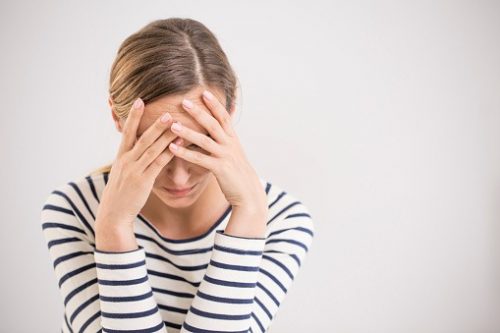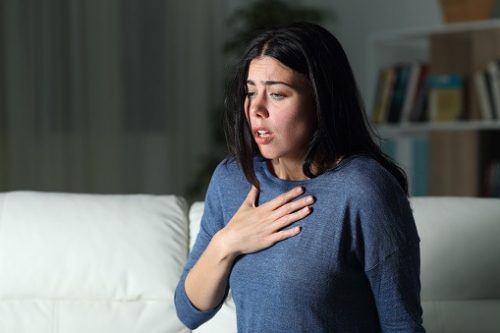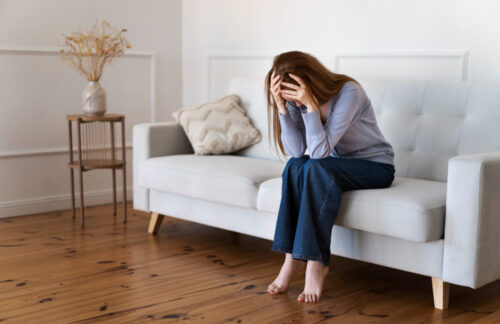Quiz On Anxiety Frequently Asked Questions
Quiz On Anxiety FAQs
It’s not always that we understand everything about our mental health. Yes, we may know some signs and symptoms, but we can only rely on the information regarding the specific thing we are dealing with once we experienced it on hand. Sometimes, even if we think we are okay, the warning signs tell us that we are not and that our health is in danger. Thus, we must also pay attention to the damaging symptoms that prove their existence despite knowing our mental health condition.

What Is A Quiz On Anxiety?
An anxiety quiz is a tool used to assess the presence and severity of symptoms and possibly discover anxiety disorders. The test typically consists of a series of questions or statements that individuals answer to indicate the frequency and intensity of their symptoms. Anxiety tests are often available online or in printed format and can be self-administered. Usually, when answering questions in a test, you have to answer as honestly as possible so that a health professional can diagnose you for a disorder. You are also asked to consider how the situations apply to you last month or so.
The questions in a test may focus on a variety of areas related to it, such as physical symptoms, thoughts, and behaviors. They may also assess specific types of mental health disorders, such as generalized anxiety disorder, social anxiety disorder, or panic disorder.
It can be useful for individuals who suspect they may be experiencing it but are unsure of the severity or type. They can also be used to monitor changes in symptoms over time or as a tool for healthcare professionals to assess and diagnose these types of disorders.
It is important to note that while a test from a specific website can provide valuable information, it should not be used as a substitute for a professional diagnosis or treatment. If an individual is having trouble with their symptoms and wants to improve their mental health, they should seek help from a doctor or qualified healthcare professional.
Benefits Of Taking A Quiz On Anxiety
- Identifying Symptoms: A test can help individuals identify the symptoms they are experiencing and determine if they may be related to them. This can help individuals recognize when they are experiencing this and seek appropriate support.
- Assessing Severity: Anxiety tests can also help individuals determine the severity of their symptoms. This information can help determine the appropriate treatment and support needed.
- Understanding Anxiety: Anxiety tests can provide individuals with a better understanding of what it is and how it affects them. This can help individuals recognize patterns in their symptoms and learn effective coping strategies.
- Seeking Appropriate Treatment: Based on the results of a quiz, individuals can decide if they may benefit from seeking professional help or treatment for their symptoms.
- Monitoring Progress: Anxiety tests can be used to monitor changes in symptoms over time. This can help individuals track their progress and make adjustments to their treatment and support as needed.
- Cost-Effective: Anxiety tests are often free or low-cost and can be easily accessed online. This makes them a cost-effective way to assess symptoms.
- Privacy: Anxiety tests can be taken in the privacy of one’s own home or online. This can be particularly beneficial for individuals who may feel embarrassed or uncomfortable discussing their symptoms with others.
- Increased Self-Awareness: Taking this test can help individuals increase their self-awareness and gain a better understanding of their emotions and behavior.
- Improved Communication: Tests can be a useful tool for individuals to communicate their symptoms to healthcare professionals or loved ones. This can help individuals receive appropriate support and treatment.
- Normalizing Anxiety: Taking an assessment about this topic can help individuals understand that it is a common experience and that they are not alone in their struggles. This can reduce feelings of isolation and increase the likelihood of seeking support and treatment.
- Early Intervention: Taking an exam on this particular mental condition can help individuals recognize their symptoms early on before they escalate to more severe levels. This can help prevent anxiety from interfering with daily life and reduce the risk of developing more serious disorders.
- Personalized Feedback: Many tests provide personalized feedback based on an individual’s answers. This can help identify specific areas to focus on for self-care and treatment.
- Tailored Treatment: Based on the results of an exam, healthcare professionals can tailor treatment plans to meet the individual needs of the patient. This can increase the effectiveness of treatment and improve outcomes.
- Reduced Stigma: Anxiety tests can help reduce the stigma associated with mental health by normalizing the experience of anxiety. By increasing awareness and understanding of this mental health condition, individuals may be more likely to seek support and treatment without feeling ashamed or embarrassed.
- Improved Quality of Life: By identifying and addressing their symptoms, individuals can improve their overall quality of life. This can include improved relationships, work performance, and overall well-being.

Can You Self-Diagnose Anxiety?
Though you can immediately recognize the signs and symptoms of anxiety, you cannot entirely self-diagnose just because you too an anxiety test. That is because a precise diagnosis can only be made through a series of clinical evaluations administered by a professional mental health expert.
Avoid self-diagnosing your condition. That way, you won’t end up miscalculating your mental health problems, and you won’t get stuck working on the wrong treatment for your anxiety. Always trust a reliable clinical method administered by a health professional.
How Do I Know If I Suffer From Anxiety?
Persistent worry, depression, and fear are fairly well-known symptoms of an anxiety disorder. However, there is an instance when you may be less familiar with the mental condition’s physical symptoms. These include the feeling of losing control, overthinking, and going crazy over unnecessary things. Anxiety can also cause heart palpitations, trouble relaxing, and trouble breathing.
But you also need to remember that every individual deals with the condition differently. Therefore, not because you might see other people laughing, doing their regular thing, functioning, and thinking appropriately does not mean they are not battling with it. It is essential to pay attention to the various symptoms each person deals with, because health conditions affect everyone differently.
What Are The Four Types Of Anxiety?
The most well-known types of anxiety are Social anxiety, Post-traumatic stress disorder (PTSD), Panic disorder, and Generalized anxiety disorder (GAD). Generalized anxiety disorder and social anxiety are common, but the other two are also significant.
If you happen to experience some of the symptoms of these mental health problems, contact your therapist and seek professional advice.

Did I Have An Anxiety Attack?
You can recognize these attacks if you start trembling, sweating, and experiencing shortness of breath. A choking sensation, nausea, dizziness, chest pain, and racing heart can indicate symptoms. The numbness, feeling nervous, feeling afraid of losing your mind, and fear of dying are included signs too.
But to be sure, learn more about panic attacks from a licensed professional. Ask a therapist about the common symptoms one experiences once the person has a panic attack. It is safe always to understand mental illness is a broad category.
What Is Bad Anxiety?
From a clinical perspective, it can be okay at times. It works in signaling the brain to avoid specific dangers. However, people with this type of disorder are different as they frequently have excessive, intense, and persistent worry and fear. Often their experiences involve repeated episodes of sudden feelings of terror that reach into a panic state.
Honestly, for some people, it is their worst nightmare. And even if how much one tells them about its benefits, everyone will still look at the condition as a damaging state. Well, you can’t blame the people.
What Does Anxiety Physically Feel Like?
Usually, anxiety’s short-term physical manifestation includes increased breathing and heart rate. If the situation gets too intense, however, you might start to feel nauseous and lightheaded. You may also experience poor sleeping habits, hydration, and other physical symptoms.
Does Anxiety Go Away When You Ignore It?
No. Ignoring your mental health condition will never make it go away. The relentless thoughts continue, and there is no way to eliminate the mental health condition without proper medication and treatment.
Therefore, you should never ignore the signs and symptoms and consult a therapist as soon as possible.

What Does The Bible Say About Anxiety?
A Bible verse from Philippians 4:6-7 says there is no need to be anxious about anything because prayer and thanksgiving get to God. It means that this mental health condition is not a sin, but the act of experiencing worries and fears that one wouldn’t experience if one showed commitment to God and followed His will.
What Are The Six Common Types Of These Disorders?
The major types of disorders are Social Anxiety Disorder (Social Phobia), Generalized Anxiety Disorder, Panic Disorder, Specific Phobia, Separation Anxiety Disorder, and Agoraphobia.
How Do I Get Diagnosed With This Mental Health Condition?
A primary care provider or a health expert is the one to diagnose generalized anxiety or any other disorder. He or she checks for signs of an underlying medical condition by performing a physical exam or asking about a series of symptoms. The health professional also recommends a blood test to determine the needed treatment that suits the mental health problem.
How Do I Stop My Anxiety?
When you’re feeling anxious, you should consider taking time off for yourself. Get rid of the negative feeling by exercising, eating a well-balanced meal, getting enough sleep, and drinking enough water. You can also consider hiking, journaling, painting, and even watching a movie to relieve your current stress.
You must focus on getting better no matter what. Always practice self-care and self-awareness. Never ignore the signs and symptoms of your anxiety. If you are emotionally troubled, talk to someone and vent your feelings. If you cannot sit still, are easily annoyed, are irritable, or cannot control worrying too much about different things, a consultation with a mental health expert can also make a great difference. Never stop looking for ways to recover emotionally and mentally.

What Do Psychiatrists Usually Prescribe For Anxiety?
Psychiatrists usually prescribe antidepressants for this type of mental health problem. They widely consider mental health problems are SSRIs or also known as Selective serotonin reuptake inhibitors. These include Zoloft, Prozac, Lexapro, Celexa, and Paxil.
What Is The Fastest-Acting Medication?
The known fastest-acting medication is Benzodiazepines or also known as tranquilizers. Drugs such as Klonopin, Xanax, Ativan, and Valium work quickly as well. These drugs typically bring relief within 30 minutes to an hour after an intake.
What Drugs Calm Your Anxiety Down?
Benzodiazepines are a well-known drug that can calm down symptoms. However, at higher doses, side effects can include feelings of isolation or euphoria, headache, dry mouth, slurred speech or stuttering, memory loss, impaired thinking, sleepiness, drowsiness, fatigue, confusion even depression.
How Do Doctors Treat It?
Physicians and other mental health experts address these mental health issues through specialized standard treatment. These involve psychological counseling and therapy. The treatment might include psychotherapy, such as cognitive-behavioral therapy (CBT) partnered with medication.





Recent Comments